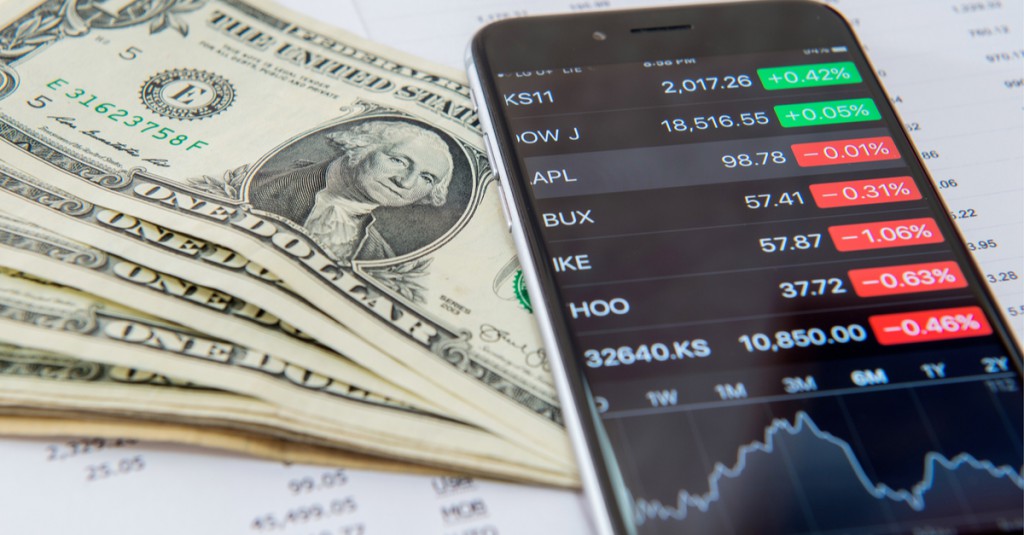The worst week in approximately two years for USA equity markets closed on a high last Friday as the indices finished in positive territory; DJIA up 1.39%, SPX up 1.49% and NASDAQ up 1.44%. The indices have now moved out of the correction area (called as down 10% from the recent peak), but are still registering year to date falls, DJIA down -2.14% and SPX down -2.04%. The mood amongst investors appears to be nervous, which is hardly surprising given that the main index has risen from circa 12,000 in 2012, to a recent high of approx. 26,600, a stunning 121% gain in approx. 5 years. Such a rise has caused many investors in U.S. markets to become complacent and to look upon the equity markets as a one way bet, therefore they’re completely inexperienced and unprepared for corrections, or bear markets.
In a low interest rate environment, in which returns on savings have been non-existent, for many private individuals the markets have provided a respite and refuge to place their savings. Suddenly they’re faced with a choice; do they cash out and move into other assets, or stay invested? If they do move their funds out of the market what assets do they invest in; precious metals, currencies, bonds? Or do they now need to learn the sophisticated skill of how to short markers? A skill that the majority of traders strive to perfect.
Working your way through the weekend financial press, as the markets have closed after such a tumultuous week, the overall opinion appears to be that the markets may be in for more testing times. It’s as if a light bulb has suddenly been switched on as the economists, investors and analysts, at a level to move our markets, have suddenly realized that; doubling U.S. interest rates from 0.75% to 1.5% in 2017 and the FOMC threatening to raise three times in 2018 during their December 2017 meeting, may have a negative effect on equity values, despite Trump’s tax cuts.
It takes time for such market shocks to be forgotten, investors, market makers and market movers will approach the markets in a far more tentative manner over coming weeks and in that sense perhaps the correction should be looked upon positively; it’s created a wakeup call. Expecting markets to deliver returns indefinitely is folly, at some stage the laws of economics, mathematics and perhaps physics take over. The era of ultra-cheap lending/borrowing is over, there’s only a limit to economic growth in any given cycle, and mean reversion will cause markets to always pull back and retrace at some stage, for a variety of reasons.
We’ll know more, with regard to the level of damage investors in USA markets have suffered to their psyches, once markets open in New York on Monday afternoon. We’re unlikely to be able to gauge the mood through the futures market Sunday evening early Monday morning in such a skittish environment. On Wednesday the latest CPI figures for the USA will be the most keenly watched inflation release in many years, based on the claims that inflationary fears, sparked by increasing wages, caused the selloff. The ten year Treasury bond reached 2.88% on Friday, a four year high.
There is only one tried and tested method to curb inflation- raise interest rates until the domestic currency rises. A stronger currency causes imported inflation to fall. However, the USA administration and the FOMC/Fed have an incredibly difficult balancing act to conduct; they want to foster increased manufacturing and exporting and a low dollar achieves this aim, theoretically. But import prices are rising and the USA thrives as a consequence of its 80% consumer driven and reliant economy, and those rising imported raw material costs will also hit manufacturers. Did the U.S. dollar fall too far in 2017, does the FOMC need to raise more aggressively and why has the market panic recently ensued, given that at 2.1% CPI is hardly excessive?
The prediction is for an announcement on Wednesday that CPI has receded back to 1.9% YoY, if this forecast proves to be correct then a sense of relief may cause equities to begin to rise, perhaps reclaiming their lost ground. If equity values do not recover based on a reduced CPI figure, then analysts may begin to question that there are many other factors which underpinned the reason for the pullback, a theory that gained a lot of credence during last week’s sessions.
Monday is a relatively quiet day for economic calendar news, Swiss CPI inflation is predicted to come in at -0.2% for January and 0.8% YoY. The monthly budget statement from the USA is the next significant calendar release on the day; the anticipation is for a modest fall for the month of January to $51.0b from $51.3b.


